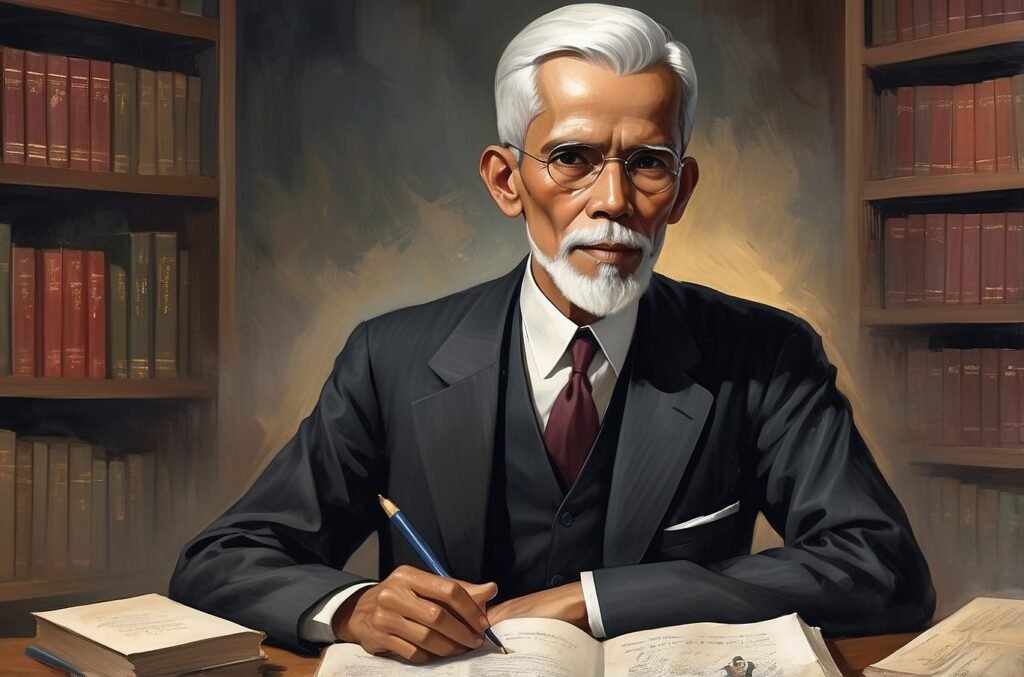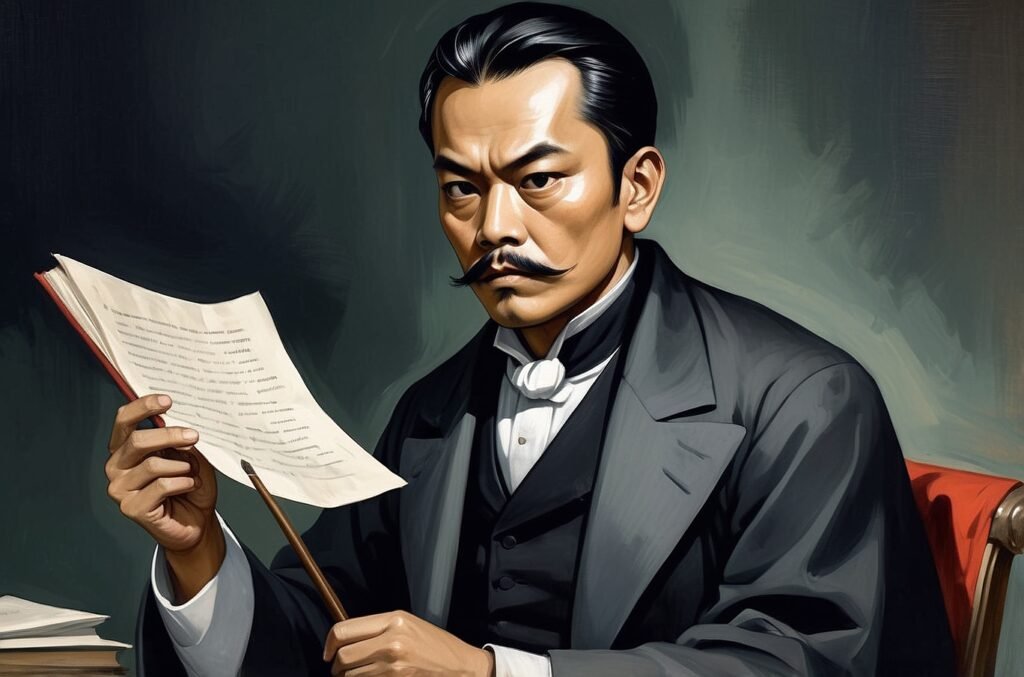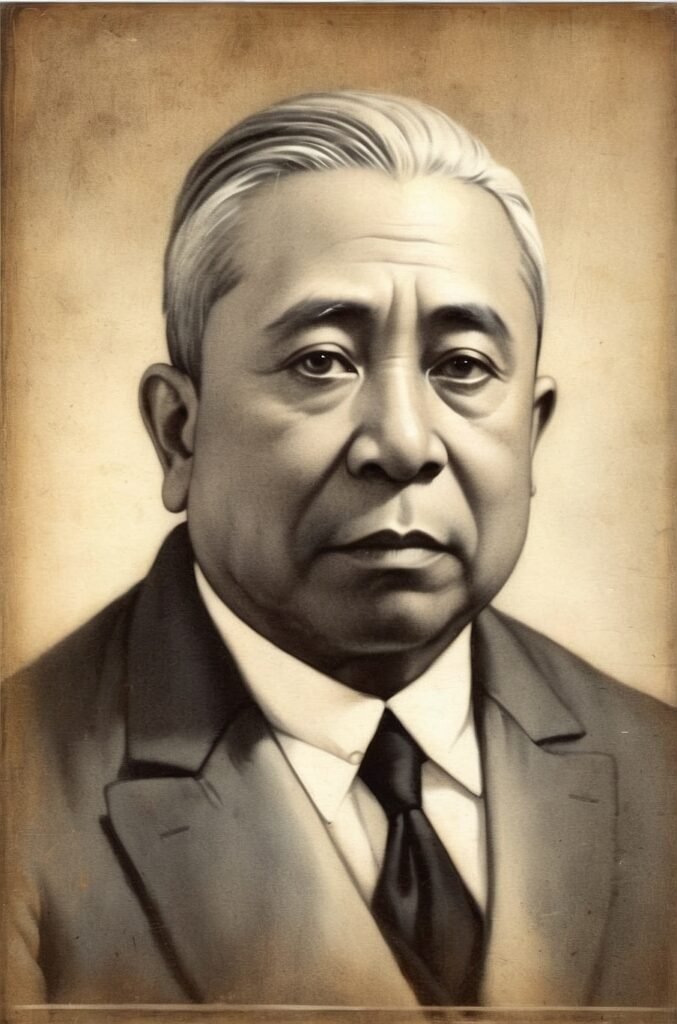Trinidad Hermenegildo Pardo de Tavera y Gorricho was born on April 13, 1857, in Manila, Philippines, during the Spanish colonial period. He came from a prominent Filipino family with Spanish roots, which provided him with unique insights into both Filipino and Spanish cultures. Pardo de Tavera’s early education took place in Manila, where he demonstrated exceptional academic aptitude from a young age. His family’s social standing and wealth afforded him opportunities for advanced education that were not available to many of his contemporaries.
In 1873, at the age of 16, Pardo de Tavera moved to Europe to further his studies. He first attended the University of Barcelona in Spain, where he began to develop his interests in history, linguistics, and cultural studies. However, it was his subsequent move to Paris that would prove most influential in shaping his academic career and intellectual pursuits. At the University of Paris, Pardo de Tavera immersed himself in a diverse range of subjects, including medicine, philology, and anthropology. This multidisciplinary approach to education would later inform his holistic view of Filipino culture and history.
During his time in Paris, Pardo de Tavera was exposed to progressive ideas and intellectual currents that were sweeping through Europe in the late 19th century. He became acquainted with other Filipino intellectuals and reformists who were advocating for changes in the Spanish colonial administration of the Philippines. This period of his life was crucial in shaping his political and social views, as well as his commitment to advancing Filipino interests through scholarship and advocacy.
Academic Achievements and Contributions
Linguistic Studies
One of Pardo de Tavera’s most significant contributions to Filipino scholarship was in the field of linguistics. He recognized the importance of language in understanding and preserving culture, and devoted considerable effort to studying and documenting Filipino languages. His seminal work, “El Sanscrito en la Lengua Tagalog” (Sanskrit in the Tagalog Language), published in 1887, was a groundbreaking study that explored the Sanskrit influences in Tagalog. This work not only demonstrated the historical connections between Filipino languages and other Asian linguistic traditions but also highlighted the rich cultural heritage of the Philippines.
Pardo de Tavera’s linguistic research extended beyond Tagalog. He also conducted studies on other Philippine languages, including Bisayan and Ilocano. His comparative analyses of these languages contributed to a better understanding of the linguistic diversity within the Philippines and the historical relationships between different language groups. These studies laid the groundwork for future research in Philippine linguistics and helped to establish it as a serious academic field.
Historical Research
In addition to his linguistic work, Pardo de Tavera made significant contributions to Philippine historiography. He was particularly interested in the pre-colonial and early colonial periods of Philippine history, areas that had been largely neglected or misrepresented in earlier historical accounts. His research aimed to provide a more balanced and nuanced understanding of Filipino history, challenging the Eurocentric narratives that dominated colonial historiography.
One of his notable works in this area was “Biblioteca Filipina” (Philippine Library), published in 1903. This comprehensive bibliography of works related to the Philippines was an invaluable resource for researchers and scholars. It cataloged a wide range of materials, including books, manuscripts, and periodicals, covering various aspects of Philippine history, culture, and society. The “Biblioteca Filipina” remains an important reference work for scholars of Philippine studies to this day.
Medical Contributions
Despite his diverse interests, Pardo de Tavera did not neglect his medical training. He made significant contributions to the field of tropical medicine, particularly in the study of diseases prevalent in the Philippines. His research on beriberi, a disease caused by vitamin B1 deficiency, was particularly noteworthy. Pardo de Tavera’s medical work demonstrated his commitment to improving public health in the Philippines and his ability to apply scientific knowledge to address local issues.
Advocacy for Filipino Culture
Cultural Preservation
Pardo de Tavera was a passionate advocate for the preservation and promotion of Filipino culture. He recognized the threat posed by centuries of colonization to indigenous Filipino traditions and worked tirelessly to document and celebrate these cultural elements. His efforts in this area were multifaceted, encompassing not only academic research but also practical initiatives to promote cultural awareness.
One of Pardo de Tavera’s significant contributions to cultural preservation was his work on Philippine ethnobotany. He studied and documented the traditional uses of plants in Filipino medicine, cuisine, and daily life. This work not only preserved valuable traditional knowledge but also demonstrated the sophistication of pre-colonial Filipino culture. His book “Plantas Medicinales de Filipinas” (Medicinal Plants of the Philippines), published in 1892, remains an important reference on traditional Filipino herbal medicine.
Promotion of Filipino Arts
Pardo de Tavera was also a strong supporter of Filipino arts. He recognized the importance of artistic expression in cultural identity and worked to promote Filipino artists and artisans. He collected and studied traditional Filipino art forms, including textiles, pottery, and woodcarving. Through his writings and public advocacy, he helped to raise awareness of the richness and diversity of Filipino artistic traditions, both within the Philippines and internationally.
In addition to traditional arts, Pardo de Tavera supported contemporary Filipino artists who were developing new forms of expression that blended indigenous traditions with modern influences. He saw this artistic innovation as a vital part of the evolution of Filipino culture and identity in the face of rapid social and political changes.
Political Involvement and Public Service
Role in the Philippine Revolution
While Pardo de Tavera was primarily known as a scholar, he also played a significant role in the political developments of his time. During the Philippine Revolution against Spanish colonial rule (1896-1898), he supported the cause of Filipino independence. However, his approach was more moderate compared to some of the more radical revolutionaries. Pardo de Tavera advocated for gradual reforms and believed that education and cultural development were essential prerequisites for successful self-governance.
Service in the American Colonial Administration
After the Spanish-American War and the subsequent American acquisition of the Philippines, Pardo de Tavera found himself in a complex political situation. While he had supported independence from Spain, he saw potential benefits in American rule, particularly in terms of modernization and educational opportunities. This led him to collaborate with the American colonial administration, a decision that would later attract criticism from some of his compatriots.
In 1901, Pardo de Tavera was appointed to the Philippine Commission, the body responsible for governing the Philippines under American rule. In this role, he worked to influence American policies in favor of Filipino interests, particularly in the areas of education and cultural preservation. He advocated for the use of English as a medium of instruction in schools, believing that this would provide Filipinos with greater access to modern knowledge and global opportunities.
Educational Reforms
One of Pardo de Tavera’s most lasting legacies was his contribution to educational reforms in the Philippines. He played a key role in establishing the public education system under American rule, which dramatically increased literacy rates and expanded educational opportunities for Filipinos. He also supported the establishment of the University of the Philippines in 1908, which became a center for higher learning and research in the country.
Legacy and Influence
Trinidad Pardo de Tavera’s contributions to Filipino scholarship, culture, and public service left a lasting impact on Philippine society. His multidisciplinary approach to studying Filipino culture set a precedent for holistic and interdisciplinary research in Philippine studies. His linguistic and historical works continue to be valuable resources for scholars and researchers.
Pardo de Tavera’s advocacy for cultural preservation helped to instill a sense of pride in Filipino heritage at a time when colonial influences threatened to overshadow indigenous traditions. His efforts contributed to the development of a distinct Filipino national identity that drew strength from its diverse cultural roots.
In the field of education, Pardo de Tavera’s reforms laid the foundation for the modern Philippine education system. His emphasis on expanding educational opportunities and promoting English language instruction had far-reaching effects on Filipino society, shaping the country’s intellectual and professional landscape for generations to come.
Controversies and Criticisms
Despite his many contributions, Pardo de Tavera’s legacy is not without controversy. His collaboration with the American colonial administration was viewed by some as a betrayal of the ideals of the Philippine Revolution. Critics argued that his support for American rule and English-language education contributed to the erosion of Filipino cultural identity and linguistic diversity.
However, defenders of Pardo de Tavera argue that his actions were motivated by a pragmatic desire to secure the best possible outcomes for the Filipino people under the prevailing political circumstances. They contend that his efforts to preserve and promote Filipino culture within the context of American rule helped to mitigate some of the more destructive aspects of colonization.
Comparative Analysis of Pardo de Tavera’s Major Works
To better understand the scope and impact of Trinidad Pardo de Tavera’s scholarly contributions, let’s examine some of his major works in a comparative table:
| Work | Year Published | Field | Key Contributions |
|---|---|---|---|
| El Sanscrito en la Lengua Tagalog | 1887 | Linguistics | Established connections between Tagalog and Sanskrit; Pioneered comparative linguistics in the Philippines |
| Plantas Medicinales de Filipinas | 1892 | Ethnobotany | Documented traditional Filipino herbal medicine; Preserved indigenous knowledge |
| Biblioteca Filipina | 1903 | Bibliography | Comprehensive catalog of works on the Philippines; Invaluable resource for researchers |
| Etimología de los Nombres de Razas de Filipinas | 1901 | Anthropology | Analyzed the origins of ethnic group names in the Philippines; Contributed to understanding of Filipino ethnic diversity |
| El Dialecto Bisaya y la Lengua Tagala | 1886 | Linguistics | Comparative study of Bisayan and Tagalog; Advanced understanding of Philippine language relationships |
This table illustrates the diverse range of Pardo de Tavera’s scholarly interests and his significant contributions across multiple disciplines. Each of these works represented a major advancement in its respective field and contributed to a more comprehensive understanding of Filipino culture, history, and society.
Conclusion
Trinidad Pardo de Tavera was a towering figure in Philippine intellectual history, whose work spanned multiple disciplines and left an indelible mark on Filipino culture and scholarship. His contributions to linguistics, history, ethnobotany, and education helped to shape the modern understanding of Filipino identity and cultural heritage. While his political choices during the American colonial period remain a subject of debate, there is no denying the lasting impact of his scholarly and cultural advocacy.
Pardo de Tavera’s life and work exemplify the complexities of Filipino identity during a period of rapid social and political change. His ability to navigate between Filipino, Spanish, and American cultural spheres allowed him to serve as a bridge between different traditions and perspectives. This unique position enabled him to make significant contributions to the preservation and promotion of Filipino culture while also advocating for modernization and educational reform.
As we continue to grapple with questions of cultural identity, national development, and global integration in the 21st century, the legacy of Trinidad Pardo de Tavera remains relevant. His commitment to scholarship, cultural preservation, and public service provides a model for engaging with both traditional knowledge and modern innovations in the pursuit of national progress and cultural vitality.
The life and work of Trinidad Pardo de Tavera remind us of the importance of preserving and celebrating cultural heritage while remaining open to new ideas and global influences. His multifaceted legacy continues to inspire scholars, cultural advocates, and public servants in the Philippines and beyond, encouraging a nuanced and holistic approach to understanding and shaping national identity in an increasingly interconnected world.
Disclaimer: While every effort has been made to ensure the accuracy of the information presented in this blog post, it is possible that some details may require further verification. We encourage readers to consult primary sources and authoritative texts for the most up-to-date and accurate information on Trinidad Pardo de Tavera. If you notice any inaccuracies or have additional information to contribute, please contact us so that we can review and update the content promptly. Our goal is to provide the most reliable and comprehensive information possible on this important historical figure.




